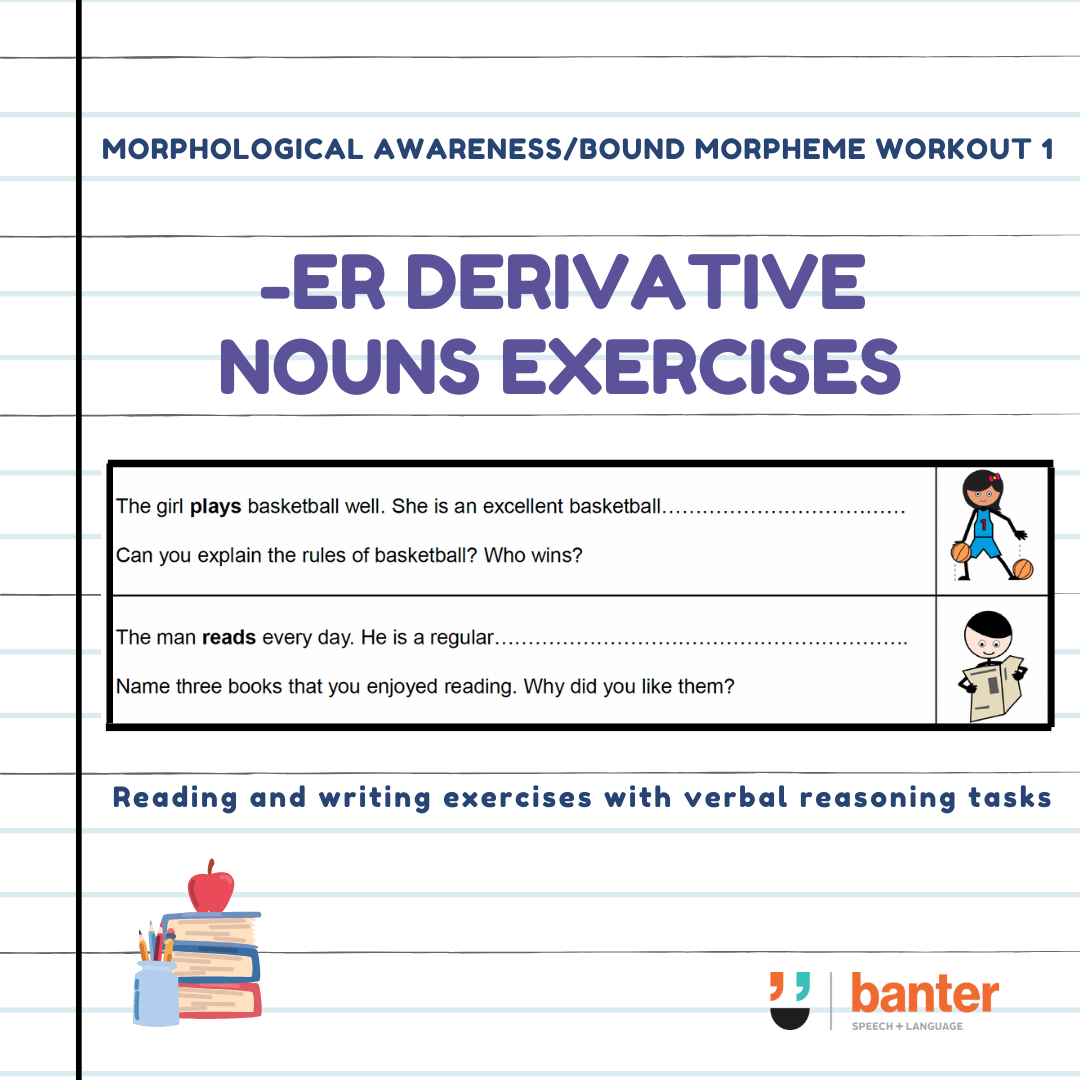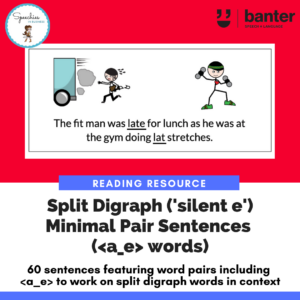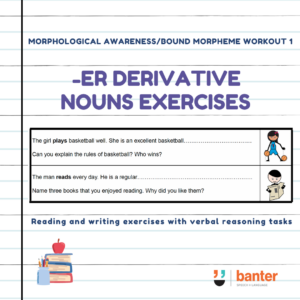(R313) -er Derivative Nouns Exercises: Morphological Awareness/Bound Morpheme Workout 1
$5.99 including GST
In these exercises, we focus on -er added to verbs to form derivative nouns like “farmer”, “builder” and “painter”. -er words like these are called “derivative nouns” because the -er noun derives (or comes from) the verb to which -er is added.
With 80 example sentences, these no-prep exercises are designed to provide students with lots of practice reading and writing derivative nouns in a short period of time while also working on a variety of sentence structures. To extend students, we also include 80 additional questions related to the derivative nouns that require verbal reasoning skills.
Description
Morphological awareness/bound morpheme workout for reading and writing:-er derivative nouns exercises with verbal reasoning tasks and a variety of sentence structures
The suffix and bound morpheme -er, when added to a verb, forms a noun that means “person who”, “thing that”, or “that which”.
For example:
-
- a person who bakes is called a “baker”;
- a thing that blows leaves away is called a “leaf blower”; and
- that which fries things is called a “fryer”.
-er words like these are called “derivative nouns” because the -er noun derives (or comes from) the verb to which -er is added.
-er words can be confusing. -er can also be added to some adjectives to mean “more of the thing”, e.g. taller, thinner, and happier, sadder, etc. These -er words are called comparative adjectives. You can find some exercises for these -er words here.
In these exercises, we focus on -er added to verbs to form derivative nouns like “farmer”, “builder” and “painter”.
With 80 example sentences, these no-prep exercises are designed to provide students with lots of practice reading and writing derivative nouns in a short period of time while also working on a variety of sentence structures. To extend students, we also include 80 additional questions related to the derivative nouns that require verbal reasoning skills. Again, these can be used for oral language or writing practice (or both), depending on your students’ goals.












Reviews
There are no reviews yet.